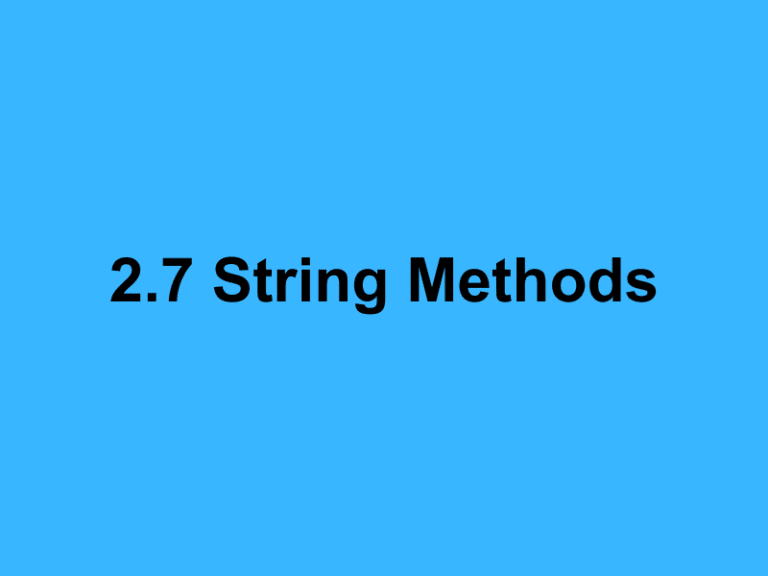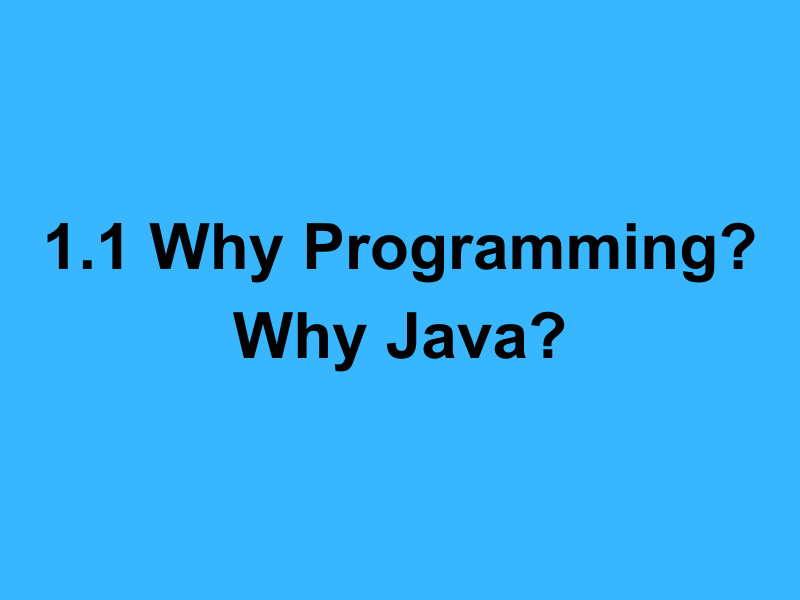The String class in Java provides a wide array of methods to manipulate and examine strings. These methods make it easier to perform common operations such as searching within strings, comparing strings, extracting substrings, and changing the case of characters within the string. Here’s an overview of some commonly used String methods:
Length of a String
- length(): Returns the length (character count) of the string.java
String str = "Hello";int len = str.length(); // 5
Substring
- substring(int beginIndex): Returns a new string that is a substring of this string, starting from
beginIndexto the end of the original string. - substring(int beginIndex, int endIndex): Returns a new string that is a substring of this string, starting from
beginIndex(inclusive) toendIndex(exclusive).javaString str = "Hello, World!";String substr1 = str.substring(7); // "World!"String substr2 = str.substring(0, 5); // "Hello"
Comparing Strings
- equals(Object anotherObject): Compares this string to the specified object. The result is
trueif and only if the argument is notnulland is aStringobject that represents the same sequence of characters as this object. - equalsIgnoreCase(String anotherString): Compares this
Stringto anotherString, ignoring case considerations.javaString str1 = "Hello";String str2 = "hello";boolean eq = str1.equals(str2); // false booleaneqIgnoreCase = str1.equalsIgnoreCase(str2); // true
Searching in Strings
- contains(CharSequence s): Returns
trueif and only if this string contains the specified sequence of char values. - indexOf(int ch): Returns the index within this string of the first occurrence of the specified character, or -1 if the character does not occur.
- lastIndexOf(int ch): Returns the index within this string of the last occurrence of the specified character, or -1 if the character does not occur.java
String str = "Hello, World!";boolean contains = str.contains("World"); // trueint indexOfO = str.indexOf('o'); // 4int lastIndexOfO = str.lastIndexOf('o'); // 8
Modifying Strings
- replace(char oldChar, char newChar): Returns a new string resulting from replacing all occurrences of
oldCharin this string withnewChar. - toLowerCase(): Converts all of the characters in this
Stringto lower case using the rules of the default locale. - toUpperCase(): Converts all of the characters in this
Stringto upper case using the rules of the default locale. - trim(): Returns a string whose value is this string, with any leading and trailing whitespace removed.java
String str = " Hello, World! ";String replaced = str.replace(' ', '-'); // "-Hello,-World!-"String lower = str.toLowerCase(); // " hello, world! "String upper = str.toUpperCase(); // " HELLO, WORLD! "String trimmed = str.trim(); // "Hello, World!"
Concatenation
- concat(String str): Concatenates the specified string to the end of this string.Alternatively, you can use thejava
String str1 = "Hello, ";String str2 = "World!";String concatenated = str1.concat(str2); // "Hello, World!"+operator for concatenation, which is more commonly used.
String Conversion and Other Methods
- valueOf(Various Types): This is a static method that returns the string representation of the passed argument. Overloaded versions exist for various data types.java
int num = 100;String strNum = String.valueOf(num); // "100"
These are just a few of the many methods provided by the String class in Java. Understanding and effectively using these methods can significantly enhance your ability to manipulate and process string data in your Java applications.
Frequently Asked Questions about String Methods
What are String methods in programming?
+
String methods are built-in functions that you can call on String objects (or sometimes primitive strings, depending on the language) to perform various operations on the text data they contain. These methods allow you to manipulate, analyze, or get information about a string without having to write the underlying logic yourself.
How do you use or call String methods (e.g., in Java, Python, JavaScript)?
+
You call a method on a string variable or literal using the dot operator (`.`):
// In Java:
String myString = "Hello";
int length = myString.length(); // Calling the length() method
// In Python:
my_string = "World"
upper_case = my_string.upper() # Calling the upper() method
// In JavaScript:
let greeting = "Hi";
let startsWithH = greeting.startsWith("H"); // Calling the startsWith() method
What is the `toString()` method in Java and why is it used?
+
The `toString()` method is a method inherited from the base `Object` class in Java. Its purpose is to return a String representation of an object.
- By default, it often returns a hash code-based string, which isn't very useful.
- It is common practice to **override** the `toString()` method in your custom classes to provide a meaningful string description of your object's state (its data).
- Java often calls `toString()` implicitly when you concatenate an object with a string using the `+` operator or when printing an object with `System.out.println()`.
Why does the `main` method in Java have `String[] args`?
+
The `main` method signature `public static void main(String[] args)` is the standard entry point for Java applications. The `String[] args` parameter represents an array of String objects. It is used to receive **command-line arguments** passed to the program when it is executed from the terminal or command prompt. This allows you to provide input to the program from the outside without hardcoding values.
// Running the program from command line:
java MyProgram argument1 argument2
// Inside the main method, args[0] would be "argument1", args[1] would be "argument2"
Is there a built-in method to reverse a String in Java?
+
The standard `java.lang.String` class in Java **does not have a built-in `reverse()` method**. Strings in Java are immutable (cannot be changed after creation).
However, the `java.lang.StringBuilder` class, which is designed for mutable strings, **does have a `reverse()` method**. You can convert a String to a StringBuilder, reverse it, and then convert it back to a String if needed.
However, the `java.lang.StringBuilder` class, which is designed for mutable strings, **does have a `reverse()` method**. You can convert a String to a StringBuilder, reverse it, and then convert it back to a String if needed.
String original = "Java";
StringBuilder sb = new StringBuilder(original);
String reversed = sb.reverse().toString(); // reversed will be "avaJ"
Which `Scanner` class method reads a whole line of input as a String in Java?
+
The `java.util.Scanner` class is commonly used to read input. The method used to read an entire line of text, including spaces, until a line separator is encountered, is the **`nextLine()`** method.
import java.util.Scanner;
Scanner scanner = new Scanner(System.in);
System.out.print("Enter your full name: ");
String fullName = scanner.nextLine(); // Reads the entire line input by the user
System.out.println("You entered: " + fullName);
scanner.close(); 





